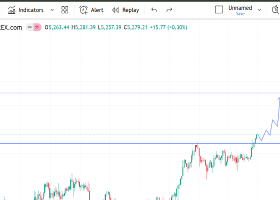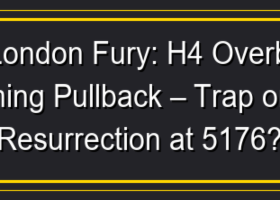
Most Bearish Towards Sterling, Eye $1.2000 Target - Analysts
In the wake of the UK's Brexit vote, there have been no shortage of calls for sterling to fall to $1.2000 in coming months, if not lower.
Indeed, on Monday, the beleaguered currency was still trying to scrape itself up from the floor of low levels last seen in the 1980s.
Copy signals, Trade and Earn $ on Forex4you - https://www.share4you.com/en/?affid=0fd9105
Cable was trading at $1.3205 in afternoon action, on the low side of a wide $1.3121 to $1.3566 range. The earlier lows were the lowest since September 1985, a month where the pair bottomed near $1.3045. The 1985 low was around $1.0545.
Ten-year UK Gilts earlier fell to a new record low of 0.929%, before closing the day near 0.934%.
"It will be months or even quarters before we have sufficient data to make an assessment of how hard UK activity has been hit by rising uncertainty and for now, we stick with our pre-referendum call that markets are likely to assume a 'typical' UK recession, with the shock to confidence causing output to fall somewhere between 2% and 4%," said Adam Cole, head of G-10 FX strategy at RBC Capital Markets
"It seems highly unlikely that this, or the policy response to it, has been fully priced into GBP yet," he said.
Despite the sterling sell-off seen already, "the risks for GBP are still to the downside and $1.20-$1.25 is now our objective for GBP/USD in late-Q3," Cole said.
The sell-off in sterling versus the dollar will likely take a toll on the euro as well. RBCCM looked for the euro to test $1.00 in the third quarter, he said.
In terms of Federal Reserve policy, "RBC has also pushed back the timing of the expected first Fed rate hike from December to mid-2017 at the earliest," Cole added.
In the wake of last week's Brexit vote, RBC Europe Ltd strategists expected the BOE's Monetary Policy Committee to cut the Bank Rate to 0.25% at the next meeting on July 14.
Then on August 4, when the BOE's Inflation Report is released, RBC looked for an additional Bank Rate cut to 0.10% "and a Gbp50bn increase in the QE target, taking the Asset Purchase Facility (APF) target to Gbp425bn," with these purchases likely to be Gilts in a program to take three months."
Societe Generale strategists viewed the UK Brexit debacle as "a very slow motion train crash."
While the UK leaving the European Union is not a "Lehman moment," the negative ramifications are not yet know and will create uncertainty which is likely to weigh on sterling, they said.
"A period of uncertainly starts with the need to choose a new leader of the Conservative Party and then goes on to a very drawn-out process of untangling the UK from the EU," the strategists said.
"Uncertainty is bad for UK growth and won't help Europe either," they said.
UK and eurozone weakness would not be as important "if the global economy were ticking along nicely," but this is not the case.
Societe Generale looked for cable to fall another 10% over time, and for the euro potentially to "fall by about half that much."
"We expect cable to trade towards $1.20 over the next 12 months as UK growth slows and concern about the external imbalance mounts," they said.
"A weaker currency would support growth, and would be welcomed implicitly by UK policymakers," Societe Generale said.
While UK exporters might cheer a falling sterling, along with foreigners looking to vacation in the UK, cable weakness does have its dark side.
"The MPC's predicament is that the inflation outlook has been transformed by sterling's collapse," said Samuel Tombs, chief UK economist at Pantheon Macroeconomics.
BOE forecasts laid out last month, i.e. that inflation would overshoot the central bank's 2% target slightly in two years, assumed that cable "would follow a path that is 11% above its current level," he said.
The sterling depreciation seen in the past few days will boost gasoline and food prices, Tombs said.
The BOE "estimates that a 10% fall in sterling lifts CPI inflation by 0.75% after two to three years; So the pound's 15% fall is set to boost inflation by just over 1%," he said.
Pantheon maintained that CPI inflation in the UK "will overshoot the 2% target substantially, hitting 3% in the second half of 2017."
For those penciling in BOE easing in July, "looser policy would depress sterling even further," and "cutting rates would make the MPC complicit in pushing inflation above its target," Tombs said.
While leading BOE doves Andrew Haldane and Gertjan Vlieghe were likely to vote to ease policy in July, "a majority of members likely will wait at least until August to assess the situation," he said.
Pantheon Economics looked for the BOE to keep policy steady for the remainder of 2016 "and in 2017 too if the UK really does exit the single market," Tombs said.
However, he saw scope for a "political solution" to be found for the UK to remain in the EU, which would allow the economy to recover gradually next year and "bring rate hikes back on the agenda, paving the way for one rate hike to keep a lid on inflation in Q4 2017."
Sterling showed little lasting reaction Monday to U.S. Rating agency Standard and Poor's lowering the UK's long term credit rating to AA from AAA, with the outlook remaining negative.
"The negative outlook reflects the risk to economic prospects, fiscal and external performance, and the role of sterling as a reserve currency, as well as risks to the constitutional and economic integrity of the U.K. if there is another referendum on Scottish independence," S&P said. See MNI Main Wire at 1:56 p.m. ET and 1:58 p.m. ET for further details.


